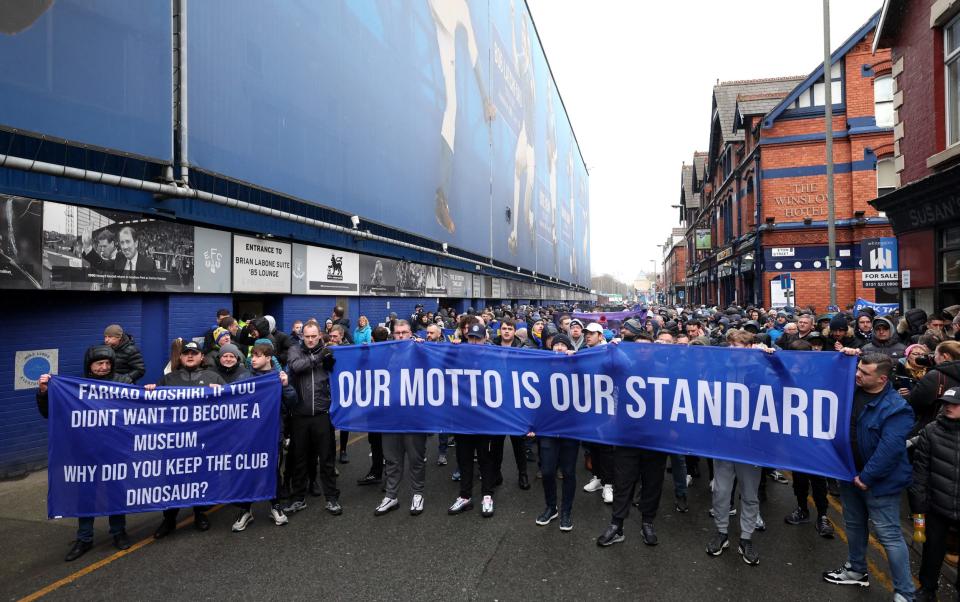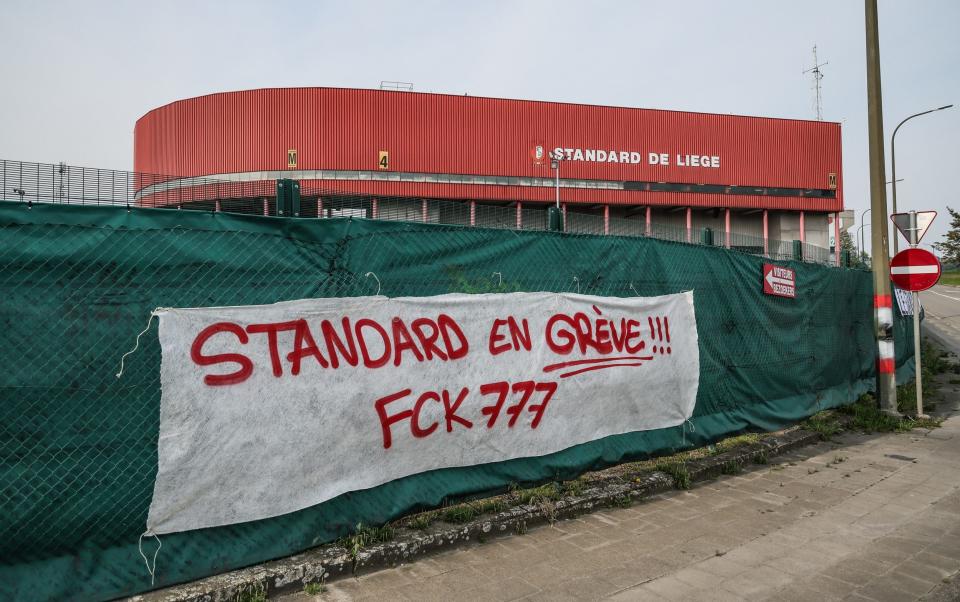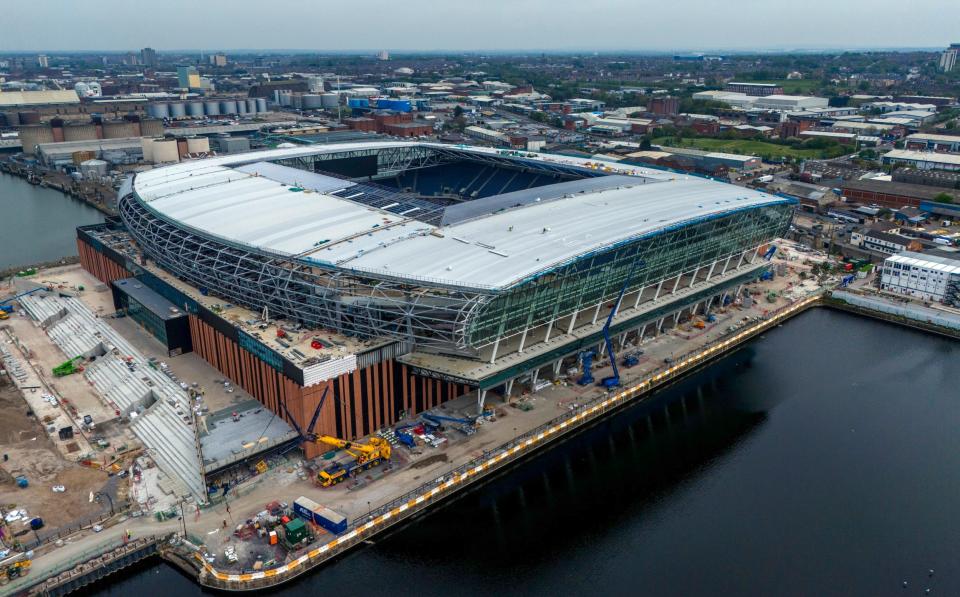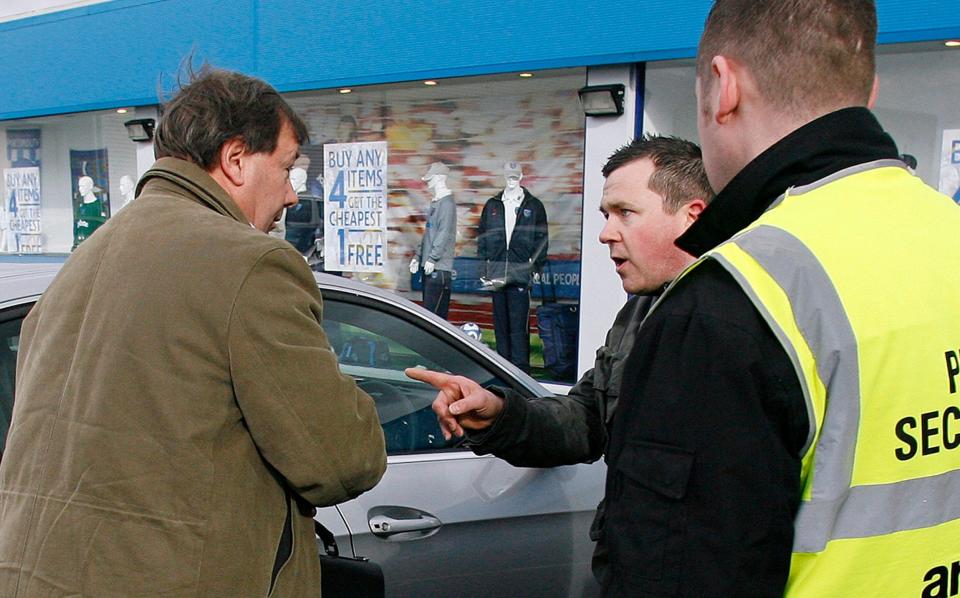Administration at Everton is not the get-out-of-jail-free card you may think

The players have been paid at Everton this month, and all other payroll, so too the contractors on the new stadium at Bramley-Moore Dock, as well HMRC, which may be the minimum requirement but stands for something in another tumultuous week.
The crumbling of the putative 777 Partners takeover has released a new wave of pessimism over the club, and it is not hard to see why. Those US investors with such a dubious track record, propelled forward by the blessing of owner Farhad Moshiri, had hoped for a quick deal. They got nothing like it and now the problems stack up. On Friday night, 777’s Belgian club Standard Liege had a game postponed when fans blocked the passage of the team bus in protest over their Miami owners.

For Liege the near future looks bleak. As for Everton, one would not make the case they are the benchmark for stability. But they do continue to operate in the short-term. The debt of around £500 million to three key parties, including 777, each with different levels of security on their loans, looms large on the balance sheet. These are difficult problems to solve, and with so much time wasted by Moshiri placing his faith in 777. But Everton are not yet at the most drastic solution of all.
Administration is no simple solution and neither is it the best solution – it is only really a solution when it becomes the only way out. It may look, for all the penalties that accompany it, attractive to some potential buyers. But its impact would be devastating for lots of people who have had little say in the matter, including around 900 Everton employees. So too the many creditors. And the smaller, the greater the impact.
In Everton’s case, the Laing O’Rourke contractors building the stadium would, in the event of administration, have no option but to cease work on the site. This is not a wardrobe assembly that can simply be paused and returned to later. The complexity of those building schedules alone makes the notion of the so-called tactical administration – to absorb the mandatory points deduction this season and start afresh next – patently absurd.

Administration is, as in many of these cases, always a possibility. But that is a long way from seeing it as a good option. Currently, Everton’s position is clear: they are not even close. There is much more to play out between what may well be the confirmation of the end of 777’s interest and what would be a difficult negotiation of the debt by a putative new bidder.
This would be complex to say the least. There is a tricky path to be walked that would see a new owner acquire the club with restructured external debts of £500 million and, via the player sales that Sean Dyche has already trailed, keep the team competitive in the Premier League next season. One could argue that the expertise the club has developed to a high competence in recent years is effective football crisis management. They do know how to do this.
It will need Moshiri to write-off his own eye-watering loan of around £450 million. He has certainly suggested that he will, which would remain a startling addendum to the legacy of one the most unpopular football club owners in recent history. It would need the club to find a way to sell the likes of Jarrad Branthwaite and Dominic Calvert-Lewin at good prices in a market crowded with sellers trying to comply with profitability and sustainability rules (PSR). They would have to finesse the loan market into a side capable of finishing 17th or better. They would have to negotiate their way clear of what could be a possible third breach of PSR.
All of which is no simple task, but better to attempt the miracle. What Everton might be worth depends on the market. Yet there has never been a club of this scale, with a new stadium so close to completion. That alone should be enough to try to generate some impetus to find a solution on the debt.
Football has its own sorry history of club administrations in the recent past going back to and beyond the single instance of it in the Premier League, with Portsmouth in 2010. It is notable that all, from Bury to Derby County, have come back in some guise. Football clubs tend not to disappear. But that does not make it an easy expediency, in this case or any other, and the scars on a club are deep.

Administration is an outcome that is not, of course, entirely in Everton’s hands, should one of their biggest creditors decide that is their best option. The ripple effect from the problems of 777, with loans of around £192 million and likely under intense pressure from their lenders, is a hard outcome to predict. MSP Sports Capital, owed around £160 million, are unlikelier candidates to do so. They are partnered in that loan by those Everton fans and property developers, Andy Bell and George Downing, as well as Moshiri himself.
Football is a risk business – and for all the possibility that the new independent regulator tries to force on clubs a regime in which sustainability makes investment all but impossible, that is the nature of the sport. The Moshiri Everton years will be seized on by those who believe owners should be forced to post bonds and lodge guarantees for every pound invested. Plenty of clubs walk a fine line and succeed, it just was not the case for this owner at this club.
What matters now is how Everton get out of it – and the scale of the task is vast. The prospect of administration is always there, but there is much that might come between now and then which could avert it.

